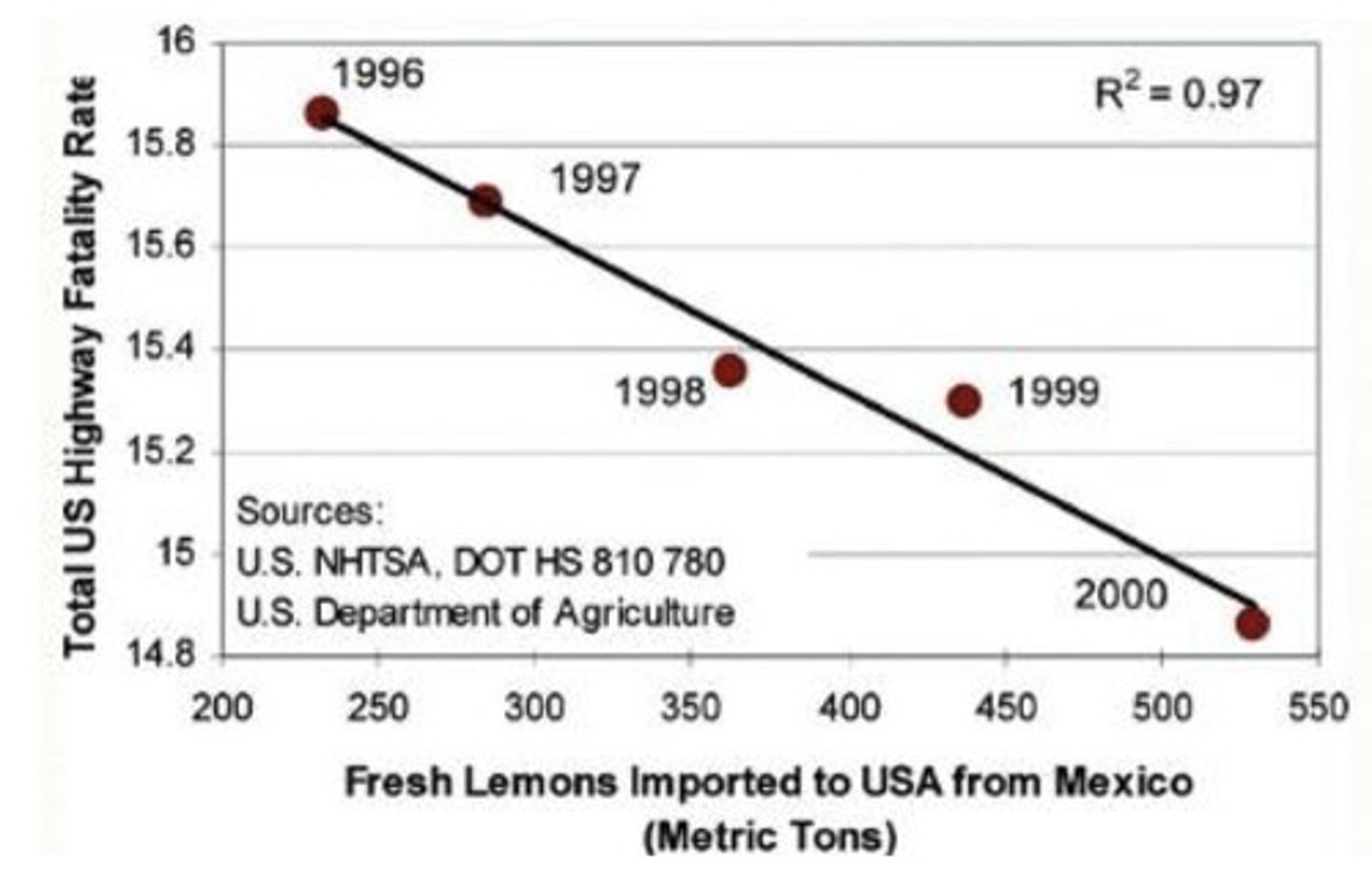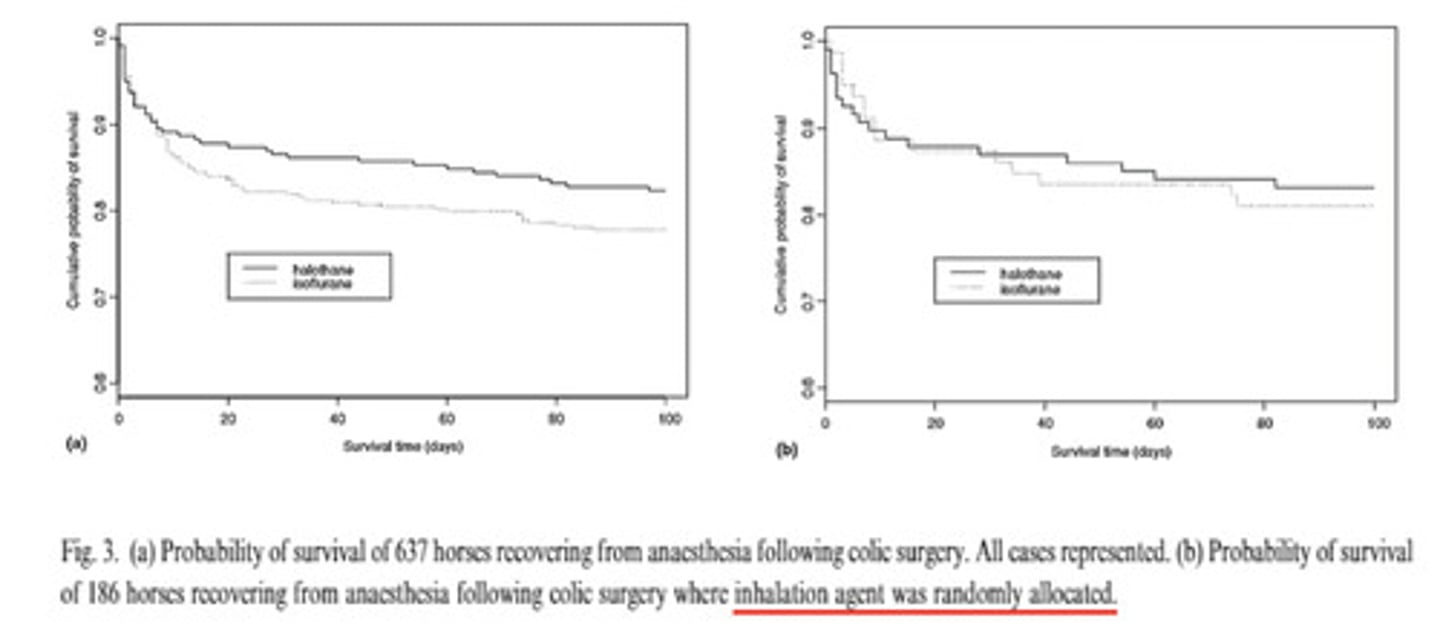2. Causation and Bias
1/30
There's no tags or description
Looks like no tags are added yet.
Name | Mastery | Learn | Test | Matching | Spaced | Call with Kai |
|---|
No analytics yet
Send a link to your students to track their progress
31 Terms
F ( Association =/= causation.)
T/F: Association proves causation.

F ( — statistical significance should not be mistaken for evidence of association.)
T/F: Statistical significance is evidence of association.
bias
What term is defined as: Any systematic (non-random) error in design, conduct, or analysis of a study that results in false association .
Randomization
___________ helps avoid bias.
- Selection bias
- Information bias
What are the 2 main categories of bias in epidemiology?
The grouping selection is flawed during the pre-study (design)
When during the study does selection bias occur?
- Non-response or loss to follow-up bias
- Exclusion bias
- Detection bias
- Self selection or referral bias
What are examples of selection bias? (4)
Selection bias
What type of bias is this an example of?

during the study, during data gathering (analysis phase)
When during the study does information bias occur?
- Misclassification bias
- Interviewer bias
- Recall bias
What are examples of information bias? (3)
Cofounding
What am I defining?
- A third variable that is distorting the effect that the determinant (risk factor or exposure) has on the outcome.
- A risk factor for the outcome
- Also associated with the determinant
- Not in the causal pathway
The confounder must have what 3 things:
Confounding
Warm weather (the confounder) is associated with ice cream sales and swimming where sharks live.
If I said "ice cream causes shark attacks", what may that be an example of?
Koch's postulates
What criteria show that one organism leads to one disease?
- The organism must always be observed with the disease
- The organism must be isolated and grown in pure culture in the laboratory
- The pure culture must cause the disease
- The infectious organism must be reisolated
What are Koch's postulates? (4)
Austin Branford Hill
Who came up with the criteria of causation?
- Temporal relationship
- Strength
- Dose-response relationship
- Consistency
- Plausibility
- Consideration of other explanations
- Experiment
- Specificity
- Coherence (analogy)
What are the 9 criteria of causation?
Exposure always preceded the outcome
Hill's Criteria of Causation:
- What is mean by temporal relationship?
T
T/F: a temporal relationship is NECESSARY for causation
Strength of association (p values or RR or OR)
Hill's Criteria of Causation:
- What is the weakest direct evidence of causation?
The size of the association:
(- Small "significant" p-values
- Large RR or OR values)
Hill's Criteria of Causation:
- What is meant by the strength of association?
dose-response relationship
Hill's Criteria of Causation:
- Which criteria is defined as :Increasing the amount of exposure consistently increases the risk (incidence of disease).
- Temporal relationship
- Dose-response relationship
- Consistency
- Coherence
Hill's Criteria of Causation:
- What 4 things provide the strongest evidence of causation?
T (. This relates to consistency.)
Hill's Criteria of Causation:
- T/F: One study is never enough.
consistent results when replicated in studies in different settings and using different methods.
(One study is NEVER enough)
Hill's Criteria of Causation:
- What is meant by consistency?
basically, the results make sense
(The association agrees with currently accepted understanding of the pathological processes.)
Hill's Criteria of Causation:
- What is meant by plausibility?
have taken other explanations into account and ruled them out
(Basically, playing devil's advocate and performing an honest evaluation of other evidence)
Hill's Criteria of Causation:
- What is meant by consideration of other explanation?
The condition can be altered by an appropriate experimental regimen.
(When ethical, experimental conformation is good).
Hill's Criteria of Causation:
- What is meant by experiment?
produces a specific effect.
(NOT common and often too simple because most diseases are often multifactorial).
Hill's Criteria of Causation:
- Specificity is established when a single cause _____________
The association is compatible with existing knowledge.
Hill's Criteria of Causation:
- What is meant by coherence?
Look for other studies that are different, but agree.
Hill's Criteria of Causation:
- How can you prove coherence?